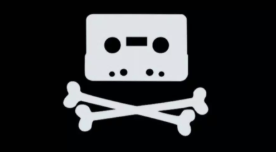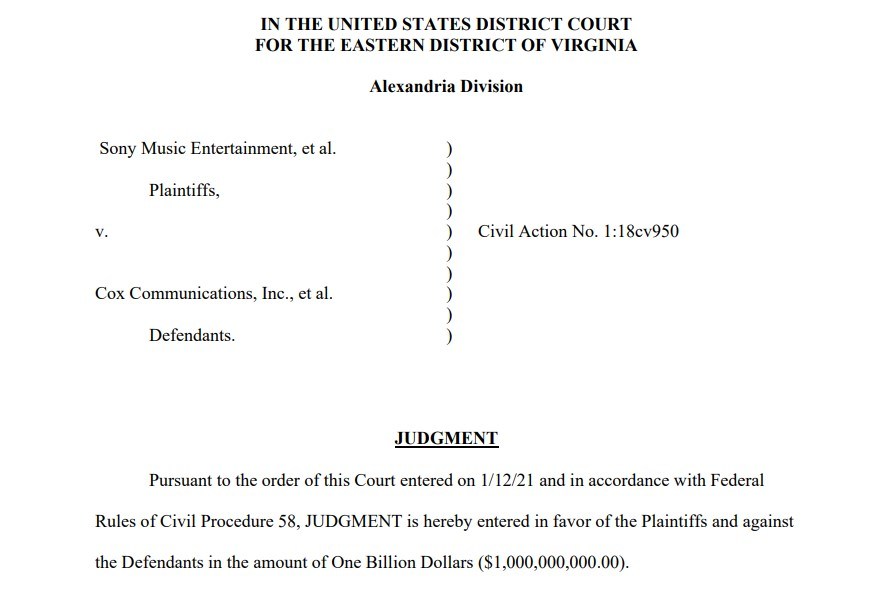Late 2019, Internet provider Cox Communications lost its legal battle against a group of major record labels.
Following a two-week trial, a Virginia jury held Cox liable for its pirating subscribers, ordering the company to pay $1 billion in damages.
Heavily disappointed by the decision, Cox later asked the court to set the jury verdict aside and decide the issue directly. In addition, the ISP argued that the “shockingly excessive” damages should be lowered. If that wasn’t an option, Cox wanted a new trial.
Last June, the court denied Cox’s request for a new trial. The damages amount of $99,830 per work wasn’t seen as excessive either. Cox had summed up a list of arguments why this is “historic” amount is “shockingly” excessive. However, unlike Cox, the court saw no “miscarriage of justice.”
While the vast majority of Cox’s arguments fell flat there was a small win for the ISP as well, one that could have large financial consequences. The court agreed with the ISP that damages should be issued per ‘work’ and not for each ‘copyright.’
There are 10,017 copyrights listed in the case which were multiplied by $99,3830 in damages per work, which led to the final figure of $1 billion. However, that could be adjusted as there are some overlapping works as well, where one song is covered by multiple copyrights.
After going over all the compilations and the various copyrights involved, Cox concluded that 2,438 works should be removed. This represents a total damages value of $243,386.25, which is nearly a quarter of the total damages sum.
The record companies didn’t contest that there was overlap, but they informed the court that it’s not correct to lower the damages award on this basis after the jury already had already gone over all the evidence. They argue that Cox should have brought this issue up during trial, not afterward.
After reviewing the briefs from both sides, US District Court Judge Liam O’Grady issued an order yesterday that sides with the record labels.
While Cox already brought up the ‘duplicate’ issue in a motion for summary judgment before trial, it didn’t raise the matter before the jury. This was despite an earlier ruling from the court the issue should be determined at trial.
“Clearly, the number of derivative works in play in this case was a question for the jury. The jury answered that question with the information available, and Cox did not provide the information to the jury that it has provided to the Court in its post-trial brief,” Judge O’Grady writes.
This means that the court’s earlier suggestion that the damages award should be reduced was wrong. Cox had its chance at trial but failed to properly address it at the time.
“The Court was therefore wrong that this re-calculation could be made on the trial record by the Court performing a ministerial act. Cox’s failure to present evidence to the jury that it had infringed on only 7,579 works resulted in the jury’s determination that Cox had infringed on 10,017 works.”
This means that the damages amount would be lowered and the original $1 billion judgment still stands.
The Internet provider has yet to comment on the ruling. Given the gravity of the case, it is likely that the company will explore further options to appeal.


 Late 2019, Internet provider Cox Communications lost its legal battle against a group of major record labels.
Late 2019, Internet provider Cox Communications lost its legal battle against a group of major record labels.




